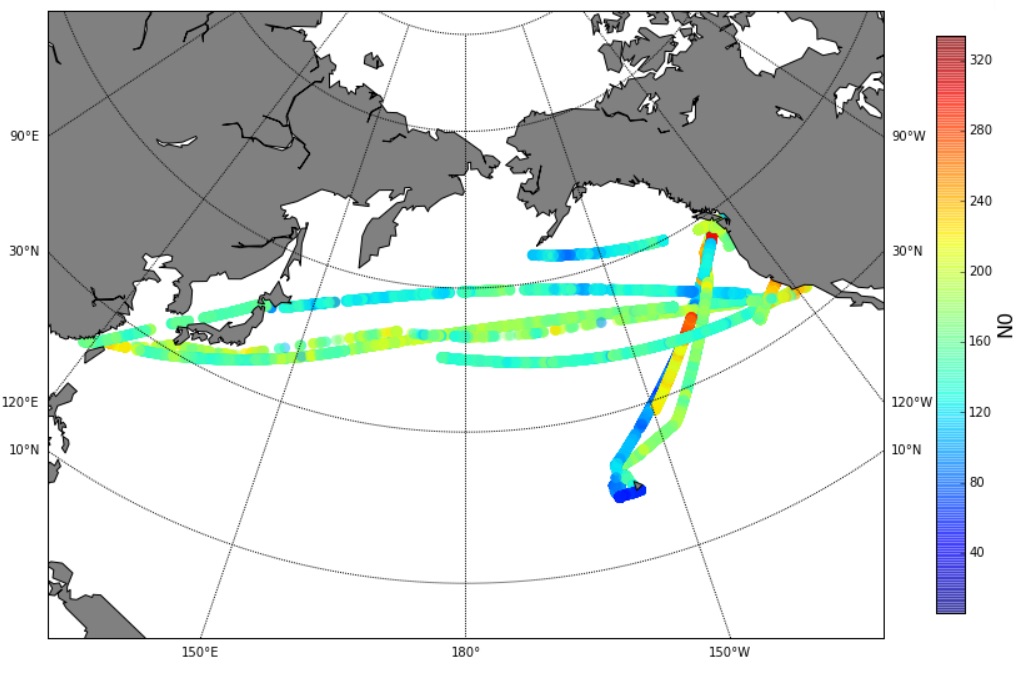Project Lead: Sophie Clayton (Oceanography)
eScience Liaison: Daniel Halperin
Microscopic algae (called phytoplankton) form the base of the oceanic food chain, and are key players in the biogeochemical cycles of many climatically-active elements. Ecological theory predicts that diverse ecosystems are more stable, i.e. more resistant to stressors, than less diverse ecosystems. However data on the diversity of oceanic phytoplankton communities is very sparse as it typically depends on very labor-intensive methods (e.g. microscope identification, molecular sequencing). In order to understand how phytoplankton diversity may be affected by climate change, it is essential to have a baseline understanding of current patterns in diversity and how they relate to environmental conditions.
In this study, we will calculate indices of phytoplankton diversity using data collected using SeaFlow, a continuously sampling underway flow cytometer. This will produce diversity estimates at high resolution over large spatial scales, and across different seasons. We will adapt Li’s (1997) cytometric diversity to better reflect the taxonomic diversity of phytoplankton observed with SeaFlow, and develop methods for integrating data from different instruments and cruises in such a way that they are comparable. Using data from the Pacific and Atlantic Oceans collected during 18 oceanographic cruises, we will conduct a meta-analysis of the patterns in cytometric diversity, and how these relate to other biotic and abiotic variables (e.g. temperature, salinity, density gradients, biomass).

